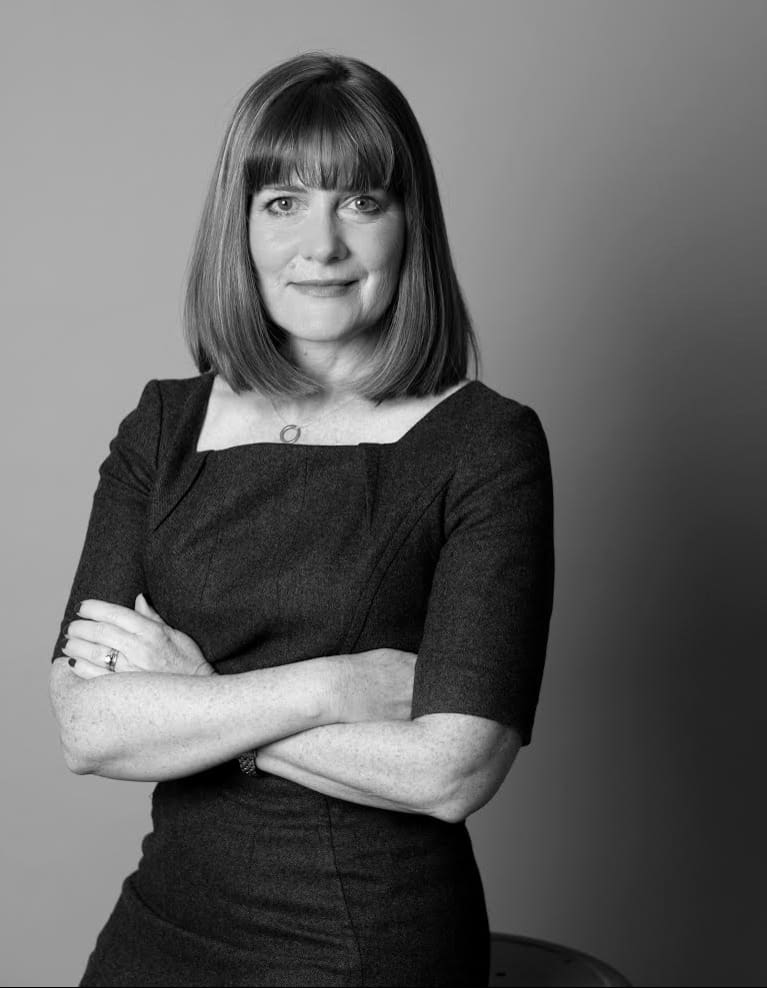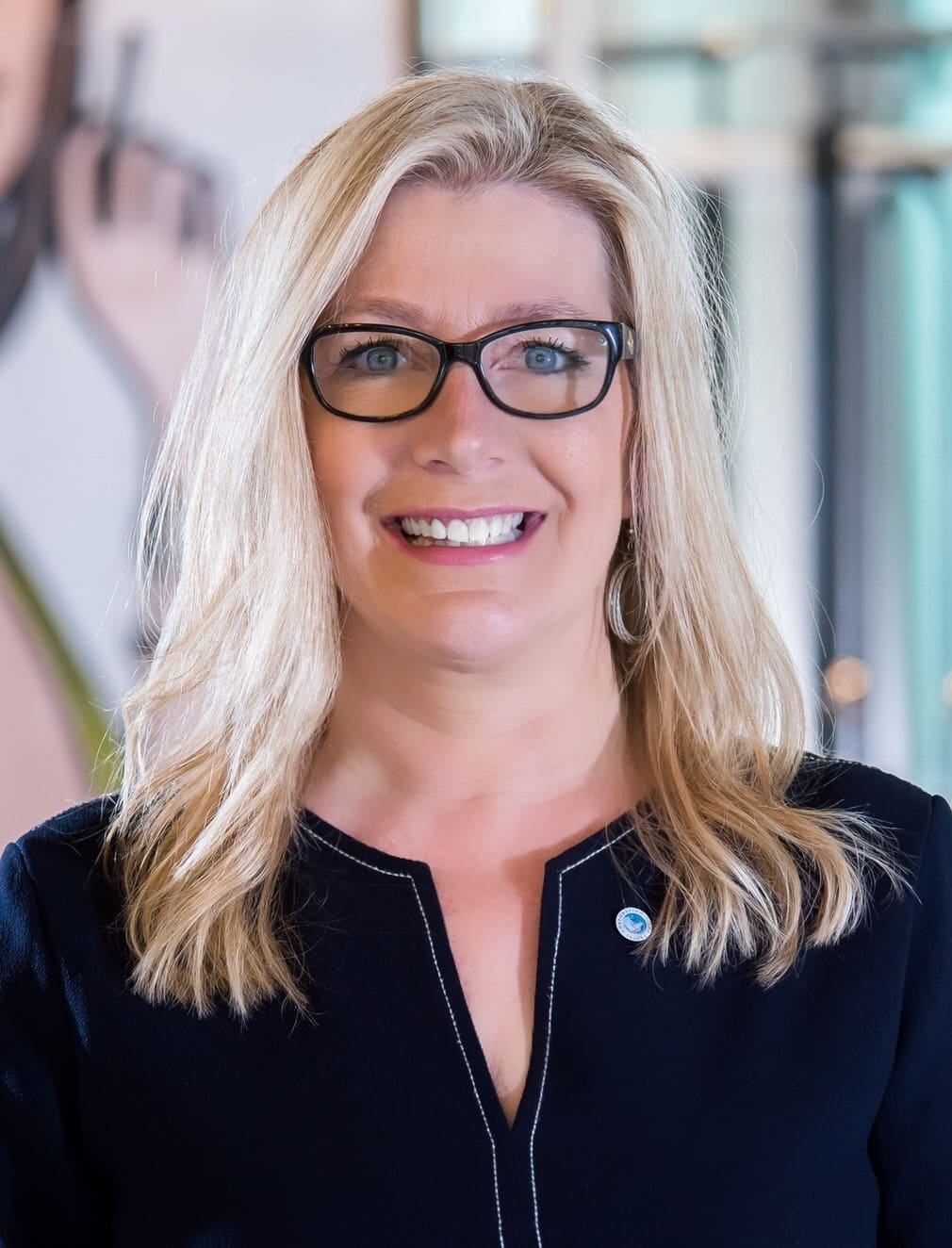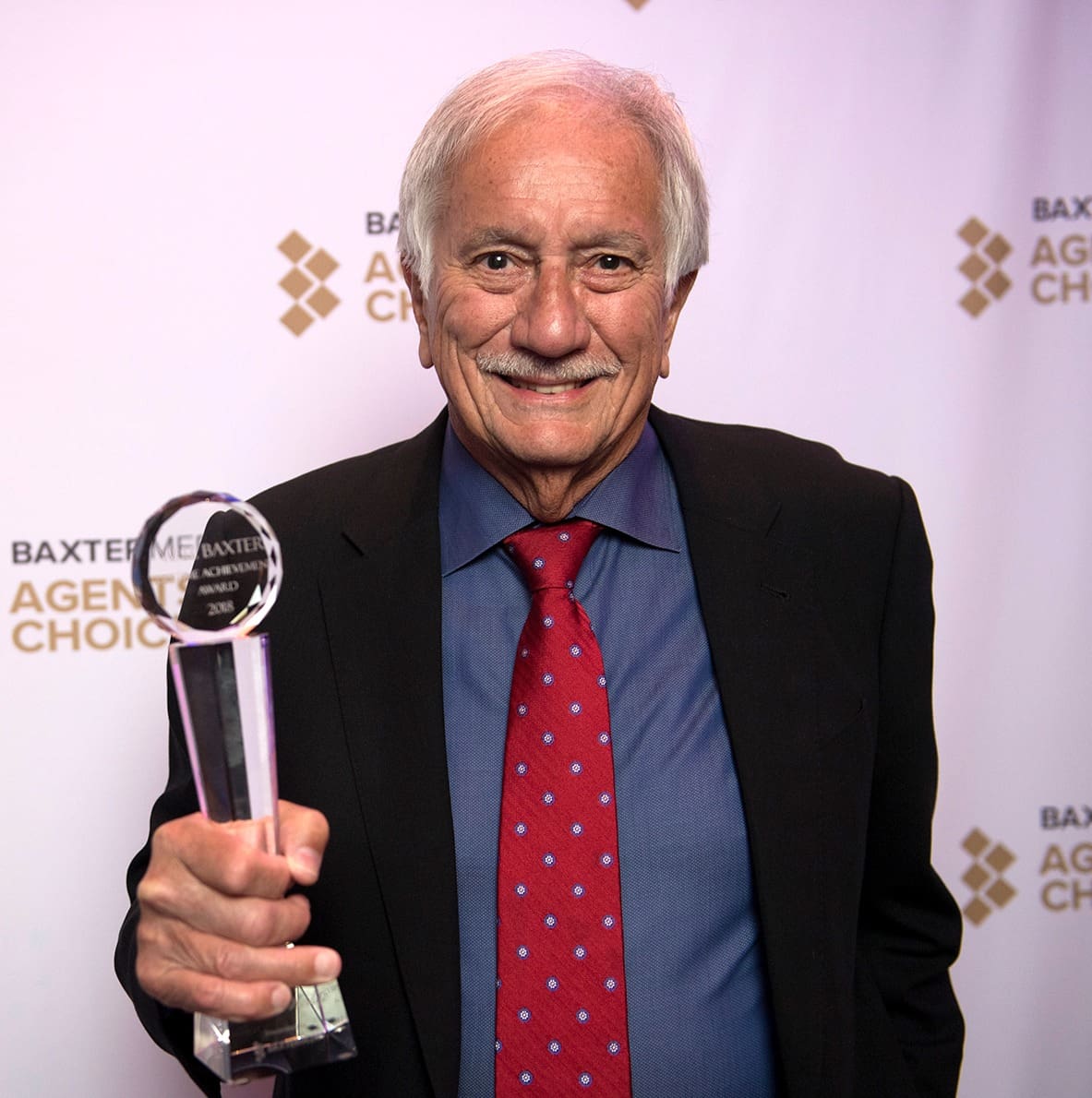Voices in the Mist
ANN RUPPENSTEIN
12 visions of the future of travel
2020 was shaping up to be a banner year for travel with endless itinerary options, a bounty of direct flight routes and a slew of travellers eager to embark on adventures.
The Travel Corporation had its centennial to celebrate, Goway Travel planned on promoting its 50th anniversary and G Adventures was gearing up to mark 30 years in business.
Instead, plans were turned upside down by COVID-19 and tour operators were forced to make tough decisions and enforce drastic cost saving measures resulting in layoffs, terminations and downsizing as international travel came to a grinding halt.
Although a major challenge remains the many unknown variables surrounding when life will return to some semblance of normal, Travel Courier talked to industry experts to hear their views on how the industry will be different post COVID-19, what the future of travel may look like and some survival strategies for those in tourism — just don’t rob a bank (more on that later).

Leigh Barnes
Chief Customer Officer, Intrepid Travel
The world has changed dramatically over the past few months and many people are suffering huge personal losses in more ways than one. This pandemic has proved that the most vulnerable people tend to be impacted the most by the worldwide cessation of travel. The homestay hosts in Peru or local safari guides in Kenya will not be given bailouts like major airlines and hotels. The locally-owned restaurants, contracted tour leaders, homestay hosts – all of these people rely on foreign tourists to support themselves and their families. The best way for us to continue to support our local suppliers is to run a good business and to start travelling again when it is safe to do so.”
While the pandemic has been devastating in so many ways, Leigh Barnes, Chief Customer Officer at Intrepid Travel said it has also provided the tourism industry with the opportunity to reflect on things that could be done better – for travellers, suppliers, local communities, and the planet.
“Travellers will also be reflecting on how they live and travel post COVID-19. We fundamentally believe that travel can only rebound stronger if it rebuilds more responsibly. Tour operators, together with local governments and destination management offices, need to work together. Now is the time for the industry to share solutions,” Barnes told Travel Courier. “Once the situation begins to subside and travellers are ready to start thinking about their next adventure, tour operators will need to be honest, open and clear in their communications, particularly around how they plan to run their tours to ensure safety and how they would handle a health concern within a group.”
In a post-coronavirus reset of the touring sector, Barnes feels small group travel, which is Intrepid’s specialty, will become the new norm.
“We believe that it will be travel companies that are most connected with their local communities who will be best placed to provide real reassurance when travel returns. The coronavirus crisis has reinforced the importance of our local destination management companies and their relationships with our local suppliers,” he noted. “We understand that once our customers start to travel again, they will want to know that we will continue to meet high safety standards in all aspects of our trips, be it the local accommodation we offer, the local restaurants we eat at, or the equipment we use on our active tours, for example. We have a global network of local offices who will be working with our partners on the ground to ensure our customers and our communities are safe.”
In 2019, Intrepid travellers were increasingly expecting companies to take climate action and overtourism was a big issue. Post COVID-19, travellers will be looking for companies to demonstrate their sustainability credentials, he said.
“One of the silver linings of coronavirus has been the reports of fish returning to the canals of Venice and the biggest boost to numbers of rare leatherback sea turtles in two decades after Thailand’s beaches were emptied of tourists,” he said.
For now, Intrepid has paused all trips globally until September 30, based on the likelihood that international borders will remain closed for an extended period of time.
“Domestic travel will come back first as people will feel more confident with their own government’s assurances and precautions to feel comfortable to explore their own backyard. International travel will begin to make a comeback this year, but much of it may depend on the politics around the reciprocal opening of borders between nations,” he said. “With most people spending a good portion of 2020 indoors, travellers that may have previously opted for an urban setting may now want to get outdoors and stay active with tours centered around cycling, trekking and mindfulness.”
Overall, he notes that Intrepid travellers are more resilient than most, and many have spent the time in lockdown booking bucket list trips to destinations like Morocco, Peru, Australia, Antarctica and the Galapagos.
“The world has changed dramatically over the past few months and many people are suffering huge personal losses in more ways than one. This pandemic has proved that the most vulnerable people tend to be impacted the most by the worldwide cessation of travel. The homestay hosts in Peru or local safari guides in Kenya will not be given bailouts like major airlines and hotels,” he said. “The locally-owned restaurants, contracted tour leaders, homestay hosts – all of these people rely on foreign tourists to support themselves and their families. The best way for us to continue to support our local suppliers is to run a good business and to start travelling again when it is safe to do so.”
Barnes believes good governance and strong health and safety practices will be more important than ever in establishing consumer trust.
“We’re currently reviewing best practices with our suppliers and looking at things like contactless check-in processes and increased transparency on hygiene. I think what’s needed will become clearer in the coming weeks,” he said. “Transparency will be key to establishing and maintaining trust. External certifications that demonstrate a company’s commitment to the safety and wellbeing of their customers – in addition to the planet and the communities they visit – will become an important marker of trust to build consumer confidence.”

Alison Hickey
President, Kensington Tours
Instead of trying to fight the reality of the situation we all find ourselves in or hope that the world is going to go back to the way it was, listen to your customers. Be open to what they’re feeling and doing today. Let them drive how you move forward, and how you change your business. Because like it or not, the next couple of years are absolutely going to be the most innovative we’ve ever seen in our industry.”
Alison Hickey, president of Kensington Tours, said health and safety will obviously be the biggest factor for people travelling post COVID-19.
“If consumers are constantly worried about things like distancing and touch when they travel, it will be impossible for them to get any enjoyment or value out of the experience,” she told Travel Courier. “We as an industry need to work together to give people a sense of real confidence about every touchpoint along the journey – getting through the airport, on the plane, at your hotel, seeing and moving around your destination. And we’re seeing that work happen on a daily basis with our in-country teams right now.”
Coming out of the pandemic, she also thinks that people will feel what it means to travel more deeply, more powerfully.
“We’ll be much more conscious of why we’re travelling, and of making the most of the moments we get with the people we meet and new places we explore,” she said. “We as humans have a fundamental need to connect with each other, and travel plays a big role in enabling that connection to happen.”
As for what’s needed for group tour operators to bounce back, she said travel companies will need to establish and implement strong guidelines about how they function with distancing and other health measures in place.
At Kensington Tours, which focuses on private-guided tours that are customized for each client, she said their travellers are the only ones with the local guide and as such aren’t part of a larger group where one would have to be more concerned about keeping a distance from other travellers.
“That’s a strong foundation for the additional work we’re doing to ensure that we limit our clients’ outside contacts and other preventative measures,” she said. “As a brand that’s so focused on each client individually, we’re anticipating that everyone will have their own personal ‘go’ moment for travel. That may mean being ready to get on a plane to spend two weeks in a destination overseas, and we’re always able to craft custom private-guided experiences for them. But it may also mean being ready to get in the car for a road trip somewhere more familiar and closer to home. That’s very understandable. And we’ll be able to craft custom private-guided experiences for those clients too.”
As for advice to other companies seeking to regain consumer confidence in travelling, she said to focus on listening to customers instead of trying to fight the reality of the situation or hope that the world is going to go back to the way it was.
“Be open to what they’re feeling and doing today,” she said. “Let them drive how you move forward, and how you change your business. Because like it or not, the next couple of years are absolutely going to be the most innovative we’ve ever seen in our industry.”

Cedar Swan
CEO, Adventure Canada
I hope it is a wake-up call for the tourism industry to renew purpose and look at how it can be a positive contributor to regenerative ecosystems and economies and support cultural integrity. With the operational pause, it affords us an unplanned opportunity to explore these opportunities hand in hand with host communities.
Due to COVID-19, the Canadian government closed the Canadian Arctic to cruise travel entirely for 2020, and Adventure Canada was forced to cancel its entire season.
“While we were disappointed, we wholeheartedly supported these measures – we visit many small, and due to their remoteness, vulnerable communities, and the health and safety of the places we have the privilege of visiting is our top priority,” Cedar Swan, the CEO of Adventure Canada told Travel Courier. “What we’ve seen in response is that the enthusiasm for polar travel is there. 48% of our Arctic clients have transferred to a future travel date. The remaining 52% cancelled their trip, but have expressed to us that they will likely book again in the future.”
Although she says it is still too early to predict the future of Arctic travel, the company is poised for a June 2021 return and is already preparing to adapt to a variety of health and safety standards as they vary from region to region.
“We predict there will be a strong desire to travel to less populated places in the future, with opportunities to better appreciate wilderness and the outdoors. However, plans must be made cautiously in order to be responsible,” she stressed. “Right now, there are more questions than answers regarding what communities and governments may determine is necessary for future tourism in these regions. In terms of health care infrastructure, will there be enhanced medical facilities? Will medical evacuations be handled differently? Will there be a designated community quarantine facility, and will visitors access this facilitate or will there be an alternative? How will northern airports change, and what protocols will be around this? What will port control look like going forward? These conversations and many more are taking place, and from an operator perspective, we must remain patient and take our lead from the wishes of the local communities that we visit.”
As a specialist in polar travel, she said a lot will depend on when a vaccine is available to people globally, but also specifically in the Arctic.
“We don’t know what a day this August will look like, never mind next August. We are prepared to adapt in order to adopt new norms and share what we love doing – connecting to the natural world and each other through travel experiences,” she said.
As travel professionals, she said travel companies must proceed with the utmost caution.
“The world is watching. If we proceed responsibly and with care, travellers and host communities around the world will slowly reconnect with the idea of travel,” she said. “I hope it is a wake-up call for the tourism industry to renew purpose and look at how it can be a positive contributor to regenerative ecosystems and economies and support cultural integrity.”
With the operational pause across the board, companies have the unplanned opportunity to explore these opportunities hand in hand with host communities.
“Ultimately, I hope this pandemic generates not just awareness, but action,” she said. “Arctic communities are in need of enhanced infrastructure for the physical and mental health of the people that call this place home. If the call to bring visitors into communities helps bring that about for local populations, that is a win.”

Bruce Poon Tip
Founder, G Adventures
We have an opportunity as a travel industry to do better when it comes to travel. We have a chance to reset everything. As we all go into hibernation and wait until we can travel again – and we must travel again. But we can do it better. We can rethink everything we thought was normal. Why fight so damn hard to return to normal when the opportunity to transform travel is on the other side of this mess?”
With all travel companies being at a standstill right now, Bruce Poon Tip, the Founder of G Adventures, sees the travel industry as the largest start up economy in the world. During this pivotal time, he said the industry has the power to reset in order to come out better than before.
“It’s created like a start up mentality in the industry,” he said. “We have an opportunity as a travel industry to do better when it comes to travel. As we all go into hibernation and wait until we can travel again – and we must travel again. But we can do it better. We can rethink everything we thought was normal. Why fight so damn hard to return to normal when the opportunity to transform travel is on the other side of this mess?”
Looking ahead, Poon Tip told Travel Courier that he sees travellers shifting towards more FIT and small group exploration, and away from mass crowds.
“More and more people will be connected to more remote places,” he said. “Hopefully this is an awakening to people about being more connected to destinations. If we learn anything as a society from the pandemic, it’s how connected everything is, just seeing how fast this spread around the world.”
Although a vaccine would be a game changer for getting the travel industry restarted again, he believes some parts of the industry will never return to normal — particularly when it comes to the changing travel patterns amongst the most vulnerable population (those who are 70 and older) who would likely avoid any shoulder to shoulder travel situations.
“I think people have very short term memory when it comes to these things. It’s a fluid situation. I don’t think our issue is just opening up borders because I think borders are going to open up long before people feel confident getting on a flight and comfortable getting on a flight,” he said. “For us, like all travel companies, we’ve all gone into hibernation mode at the moment. We’ve done all these tough decisions and changes and all of us have taken advantage of furlough schemes and had to deal with terminations as well because none of us are going to be the same size on the other side of this, the numbers of people aren’t going to be needed for some time until we have a bounce back to where we were before this.”
Being transparent and offering flexibility surrounding bookings will be key to regaining consumer confidence in travelling.
“On the other side of this there’s a chance that there are going to be less companies. I think the strong brands are going to survive. I think we were getting a bit ridiculous in terms of people being really motivated by price point — booking any scale or any kind of resort or going anywhere they can based on price,” he said. “I think people who continue to travel are going to be, I won’t say picky, but they’re going to ask more questions. They’re going to book more confidently with brands who have a good reputation. Travellers are going to be smarter, wiser and ask more questions”
Although there are many moving variables to consider, he sees a bounce back in bookings coming to fruition later this year.
“People are still booking trips with us, that’s a real surprise and they’re actually going up. My feeling is we’re going to have a bounce back, not to normal, but a bounce back to business in the latter quarter of this year and to have trips back up and running early next,” he said, noting that it will take some time for business to get back to where it was before. “That’s our hope but there are so many factors that play into that. I have to say I am starting to hear what I want to hear. Someone came out and said they’re going to have a vaccine in a few months, I don’t know how that’s possible, but I want to believe it…”
Although G Adventures already operates small group sizes, he believes there will also be a huge training proponent going forward across small scale operators and hotels to comply with travellers’ new expectations surrounding hygiene and cleanliness, as well as health and safety standards and protocols. Another factor to consider will be around giving travellers the ability to have their own rooms rather than shared accommodations, as well as reconsidering methods of transportation like public transit or destination specific options like a chicken bus, which will also impact operations.
“I think the biggest thing is probably the flexibility in the short term in terms of the restrictions we have traditionally on booking, so changing our operation procedures to give customers flexibility should they want to cancel, should they want to move trips, to book with confidence,” he said. “That’s a whole contracting process for us because when someone books a trip with us, we start spending money in terms of deposits on hotels, booking transportation, hiring people to create these great experiences. We’ve often had, they’re quite strict cancellation and change policies because it’s very expensive to change someone, but I think now all hotels and all transportation providers are realizing that on the other side of this, there’s going to have to be a huge amount of flexibility for customers to book with confidence, knowing that their trips could be changed, or they can be moved, that there’s flexibility for that.”

Michelle Palma
Vice President, Field Sales – North America, Uniworld
At the end of the day, we are all in this together and while consolidations are inevitable, our industry will come out of this stronger and more aligned across all segments. The one thing I do know for sure is that now more than ever consumers will recognize and appreciate the knowledge, expertise and value that working with a travel advisor provides which will ensure our industry continues to flourish in 2021 and beyond.”
After holding virtual meetings with its top accounts and travel advisors, Michelle Palma, Vice President, Field Sales – North America, Uniworld, said they’ve gleaned incredible insights into the current market conditions.
“First and foremost is that consumers still want to travel. Many clients that have travel plans for late summer and fall 2020 are optimistic and are waiting to see what happens in the coming weeks as parts of Canada and the world start to open back up,” she told Travel Courier. “That being said, there are also consumers who have written off their plans for 2020 and have chosen to rebook to 2021 when they feel the international borders and skies will be fully reopened.”
A big trend will be the push towards travelling domestically, she said.
“I predict taglines like ‘Explore your own backyard’ will become trendy,” Palma said. “Many of the partners we spoke with have already done initial surveys of their clients’ future travel intentions and the consensus is that the small, intimate environment of a river cruise ship is still very much in demand for future travel plans and we are certainly seeing that reflected in our 2021 sales which are up significantly year over year.”
With health and safety standards being increasingly important to travellers, the boutique river cruise collection recently announced enhanced protocols onboard its ships.
“The health and well being of our guests and crew are paramount and we want them to know that we have them covered every step of the way. These new measures will be incorporated into everything we do, including servicing guest suites, onboard dining, excursions, transfer vehicles and crew etiquette,” she stressed, noting that the new procedures are highlighted on its website and was even incorporated into a new module in its online training program. “It’s crucial that our agency partners know exactly what measures have been taken onboard the ships so they can pass the information along to their clients which will provide them with peace of mind and assurance they need to book with confidence.”
No matter what travel will look like on the other side, she strongly believes that agents will play a big role in the future of the industry.
“At the end of the day, we are all in this together and while consolidations are inevitable, our industry will come out of this stronger and more aligned across all segments,” she said. “The one thing I do know for sure is that now more than ever consumers will recognize and appreciate the knowledge, expertise and value that working with a travel advisor provides which will ensure our industry continues to flourish in 2021 and beyond.”

Jeff Roy
Executive Vice President of Revenue Management and Pricing, Collette
We’re working alongside our vendors such as airlines, hotels, restaurants, and motor coach companies to establish enhanced health and safety guidelines that we’ll collectively meet and exceed, while being transparent about those changes.”
Working for a company that’s been in business for 102 years, Jeff Roy, Executive Vice President of Revenue Management and Pricing at Collette, said the tour operator has gone through and overcome other challenging times.
“Like much of the industry, we really don’t know when guests will be able to travel,” he said. “The one thing we know that advisors can focus on is their relationships. Our data from those trying events of the past has shown us that guests will rebook, and they will go back to the advisors and tour operators that stood by them during this challenging situation.”
In a post COVID-19 travel world, making guests feel comfortable from both a health and safety perspective will be key.
“We’re working alongside our vendors such as airlines, hotels, restaurants, and motor coach companies to establish enhanced health and safety guidelines that we’ll collectively meet and exceed, while being transparent about those changes,” he said.
Pre-COVID 19, Collette had noticed a surge in demand for its Small Group Explorations line that averages 19 passengers per departure, and he predicts that they will continue to see interest in that product line surge going into 2021 as many people will be seeking to travel in smaller groups in the more immediate future.
Moving ahead, the tour operator will continue to maintain strong two-way communication with travel advisor partners.
“Now, more than ever, we want to provide flexibility for travellers who have been affected by any disruptions in their travel plans.”
By offering multiple options from a full cash back refund to travel vouchers valued at 105% of the money paid when a departure is cancelled, he believes any friction between the travel professional and the guest will be eliminated.
“And to show our appreciation for their tireless efforts, we are offering agents an additional $50 booking bonus for those who do rebook,” he added. “We know that the travel market will return soon, and there will be an enormous demand for people to see the world. Advisors who have strong relationships with their customers will play a vital role in fuelling the rebound.”

Wolf Paunic
President, Trafalgar
During this recovery time, clients will be researching their next vacation and will make more conscious choices in where they truly want to travel. Canadian travel agents now have the opportunity to keep building their relationships and demonstrate their expertise and get their clients inspired.”
As the travel industry evolves into its new normal post COVID-19, Wolf Paunic, President of Trafalgar said new standards of health and well being will be implemented across all operations and will remain a top priority.
“Canadian clients will be ready to make meaningful connections with people, places and the local cultures of the destinations they explore,” he told Travel Courier. “When Canadians will be travelling again, domestic travel is of top interest. Clients are looking to explore unique and local experiences in their own backyard across our vast country.”
Paunic noted that Trafalgar and Costsaver will fully comply with World Health Organization and local government guidelines set for each destination.
“We have always held the health and well being of clients as paramount and will continue to do so,” he said, adding that it could result in some changes in how they operate. “For instance, group sizes may decrease to adapt to social distancing rules and regulations implemented per destination.”
During the road to recovery, he said the company will be there to support travel agents.
“Clients will be researching their next vacation and will make more conscious choices in where they truly want to travel,” he said. “Canadian travel agents now have the opportunity to keep building their relationships and demonstrate their expertise and get their clients inspired.”

Bruce Hodge
Founder and President, Goway Travel
The big problem is no one knows how long this crisis will last and the last industry to come back will be the travel industry. Because I believe it is going to be a long time many businesses won’t make it or will be part of other businesses… If you have a good reputation it will be even easier to regain consumer confidence in travelling with you, depending on how many of your competitors have disappeared.”
Looking to the future of travel past COVID-19, Bruce Hodge, Founder and President of Goway Travel, believes there may be fewer companies on the other side.
“The big problem is no one knows how long this crisis will last and the last industry to come back will be the travel industry. Because I believe it is going to be a long time many businesses won’t make it or will be part of other businesses,” he told Travel Courier. “If you have a good reputation it will be even easier to regain consumer confidence in travelling with you, depending on how many of your competitors have disappeared.”
With travel plans on hold, Goway, which has already announced it will be postponing its anniversary festivities by marking its 50th milestone in 2021 with the Goway’s 50th+1 anniversary celebrations, implemented new policies like an updated flexible deposit policy and booking conditions.
“Because we don’t know how long the business interruption will be, Goway has made a commitment to upgrade our technology and systems to ensure we are in a better position to efficiently deal with the expected pent up demand,” he said.
Unless there is a vaccine, he feels tour operators will have to introduce COVID-19 safeguards that will add to the cost of the tours.
As for tips to overcome the hurdles ahead, the biggest issue will be dealing with a lack of cashflow.
“The main hurdle will be holding on to cash… so robbing a bank would help,” he joked.

Shannon Guihan
Chief Sustainability Officer, TreadRight
I believe that the industry will be met with a traveller who’s become more discerning. Like an awful lot of things in our lives, travel had become something many of us had taken for granted. Multiple trips a year was simple for many. I think the new, post COVID-19 traveller will be more considerate about where they travel, with whom, for how long and, I hope, what they do while there, and that this will result in a more aware, conscious traveller.”
In a post COVID-19 travel world, Shannon Guihan, Chief Sustainability Officer for The TreadRight Foundation, believes that the industry will be met with travellers who are more discerning.
“Like an awful lot of things in our lives, travel had become something many of us had taken for granted,” Guihan told Travel Courier. “Multiple trips a year was simple for many. I think the new, post COVID-19 traveller will be more considerate about where they travel, with whom, for how long and, I hope, what they do while there, and that this will result in a more aware, conscious traveller.”
As travellers become more aware of their choices, this awareness will result in higher expectations for how tour operators operate.
“Higher expectations, to me, means a greater responsibility to consider the way in which we operate, and the imperative to do so with the same consciousness that I hope travellers themselves will bring,” she said. “Two sides of the same coin.”

Brad Ford
President, Insight Vacations and Luxury Gold
We are all part of an incredible travel industry that is remarkably resilient. We have gotten through time and time again when faced with any challenges we have encountered. We will get through this recovery period together, stronger and better.”
As the industry at large begins to adjust to a new normal post COVID-19, Brad Ford, President of Insight Vacations and Luxury Gold, said the health and safety of travellers will remain a key priority.
“Our guests’ well being is of the utmost importance,” he told Travel Courier. “Countries around the world will continue working together as a positive force for good to bring travel back and adapt to our new normal in the post COVID-19 era.”
Based on the World Health Organization’s recommendations, Insight Vacations and Luxury Gold will be implementing enhanced hygiene protocols and physical distancing procedures as they prepare to welcome guests back.
“We will continue to adapt and are committed to follow the guidelines by government authorities,” he said. “We are working closely with our valued travel advisors and partners and sharing feedback about clients new travel expectations and how they are looking forward to travelling again.”
Ford sees Canadian travellers adapting to domestic travel first.
“There is a heightened interest to explore our own beautiful country from coast to coast and to later travel internationally,” he said. “We are all part of an incredible travel industry that is remarkably resilient. We have gotten through time and time again when faced with any challenges we have encountered. We will get through this recovery period together, stronger and better.”

Darcie Guarderas
Director of Business Development, Anderson Vacations
Things are different now. But that doesn’t mean things are worse than before. Travellers will be more thoughtful, more socially conscious, more present. It will take some time, but I truly believe that the reset button has been pushed and the world will soon be ready to explore once more.”
Darcie Guarderas, Director of Business Development at Anderson Vacations, said one of the ways the travel industry will be different post COVID-19 will be in a shift towards staying closer to home.
“I believe that Canadians are ready to get out there and travel, but I think they are going to be staying closer to home for the first few months,” she said. “People are excited to get back to normal, whatever the ‘new normal’ might be.”
At Anderson Vacations, which already offers a variety of ways to travel throughout Canada including self-drive packages, weekend getaways, and small group fully escorted tours, they are adding to the repertoire by creating some shorter durations of its popular small group tours for those wanting “to take baby steps” back into travel.
In order for some consumers to regain confidence in travelling, exploring their own backyard will also be key.
“It is more important than ever to shop local, to support local business. We need this for our economy,” she said. “Things are different now. But that doesn’t mean things are worse than before. Travellers will be more thoughtful, more socially conscious, more present. It will take some time, but I truly believe that the reset button has been pushed and the world will soon be ready to explore once more.”

Sheralyn Berry
President, Contiki Holidays
Tour operators will also have the opportunity to pivot how they operate. These opportunities include, but are not limited to, product offerings, refreshed itineraries and CSR initiatives. When the time is right, Contiki and our loyal agents will continue to bring clients together to discover the world.”
Sheralyn Berry, President of Contiki Holidays, said the travel industry will need to adapt to meet the evolving needs of the customers after COVID-19.
“The travel industry will see shifts in buying patterns and decisions made while travelling like we have never seen before,” she told Travel Courier. “Clients’ comfort levels may also be altered and travellers will be more conscious when planning their next trip. These are all things that professionals in our travel industry will have to be mindful of.”
With the well being of guests being the top priority, she said Contiki will be implementing additional health and safety protocols.
“Tour operators will also have the opportunity to pivot how they operate. These opportunities include, but are not limited to, product offerings, refreshed itineraries and CSR initiatives,” Berry noted. “When the time is right, Contiki and our loyal agents will continue to bring clients together to discover the world. In the meantime, we are continuing to stay engaged and connected with our Gen-Z and millennial travellers who are providing their feedback in where they want to explore next and their specific interests so we will continue to create more unique and amazing experiences.”
With a pent up demand for travel, she’s optimistic about what the future holds.
“Everyone that you talk to is looking forward to getting back to travelling after COVID-19, however that may look and whatever form that may be,” she said. “This too shall pass and our industry will be stronger due to this experience.”

















